The goals of our Education and Outreach core are to share our research with the public and school children, train junior investigators to communicate their research to a variety of audiences effectively, encourage undergraduates to pursue research in STEM fields, specifically in cancer-related research fields, and to train researchers in cutting edge experimental techniques, image analysis, and computational modeling through workshops and summer schools.
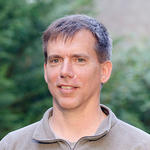 Prof. Corey O’Hern, Director of Education and Outreach Core
Prof. Corey O’Hern, Director of Education and Outreach Core
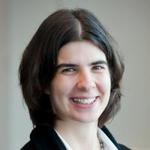 Dr. Dorottya Noble, Associate Director of Education and Outreach Core
Dr. Dorottya Noble, Associate Director of Education and Outreach Core
Sharing CaSBY research with the public and our community
-
“In Conversation with …”
Meet CaSB@Yale researchers and hear about their research, thoughts on systems biology, and career path through a series of short video interviews with junior investiagtors. Center Director Andre Levchenko kicsk off the series sharing his views on what systems biology is and how that approach has helped us learn more about biology and cancer. Videos are available on YouTube.
-
CaSB@Yale faculty featured on Yale Cancer Answers Radio Show
The Yale Cancer Answers radio show, run by the Yale Cancer Center, provides information to listeners on cancer research, screening, detection, treatment and prevention. So far, two Cancer Systems Biology at Yale faculty have appeared on the show discussing their research. You can listen to the recordings of the show by clicking on the link below and finding the recording on the Yale Cancer Answer website.
Sunday, July 30, 2017
Cancer Research in Action
Guest: Dr. Mark Lemmon
https://www.yalecancercenter.org/patient/answers/programs.aspx#year-2017
Sunday, July 9, 2017
Unlocking the Secrets of Cancer
Guest: Dr. Jesse Rinehart
https://www.yalecancercenter.org/patient/answers/programs.aspx#year-2017
-
Public Interest Pieces
An effort started at the CaSB@Yale, in an effort to feature CSBC and PSON researchers in a way that is accessible to the public. All of the Public Interest Pieces can be found on the CSBC website’s resources and outreach page. We want to thank patient advocates Bob Riter and Valencia Robinson in helping finalize these short articles!
-
Hartford Courant/News in Education - Science Matters! series
Daniel Seara, a graduate student in the Murrell laboratory wrote “Metastasis – A force to be reckoned with” as part of the Hartford Courant/News in Education – Science Matters! Series, which is an online interactive classroom resource to help teachers connect students to the news and provide common resources. Thanks for the Connecticut Academy of Science and Engineering for the invitation!
https://www.nieonline.com/courantnie/downloads/sciencematters/metastasis.pdf?CFID=64771894&CFTOKEN=51245155
Jack Treado, a graduate student in the O’Hern laboratory wrote “Protein folding: Nature’s Rubik’s Cube”.
https://www.nieonline.com/courantnie/downloads/sciencematters/NIE_CASE_June_2019_Preliminary.pdf
-
Yale Daily News
CaSB@Yale research has been featured in the Yale Daily News multiple times.
https://yaledailynews.com/blog/2019/03/05/researchers-engineer-immune-cells-to-fight-cancer/
https://yaledailynews.com/blog/2019/04/16/new-crispr-tool-detects-the-spread-of-cancer/
https://yaledailynews.com/blog/2019/04/02/yale-scientists-identify-cancer-suppressing-gene-in-mice/
-
Outreach with local schools
There are many opportunities to introduce local school children to research focused on systems biology and cancer. Most of the events listed below are organized together with Pathways to Science at Yale, a program that provides STEM outreach opportunities for New Haven public schools.
-
Flipped Science Fair: CaSB@Yale

Junior researchers presented their research in the form of posters to high school students from the area. The high school students served as poster judges and selected the top poster presenters. All presenters prepared a poster specifically for this event, after having multiple opportunities to receive feedback on both their poster and presentation from a committee of CaSB@Yale faculty and staff, as well as graduate students from Yale’s Science Diplomats.
Graduate students and postdocs have presented their Flipped Science Fair poster in other settings as well, such as to Yale staff at Founder’s Day.
We also asked the high school students what new and interesting science topics or fields they learned about. Here are some of the things they said:
“I learned about how cancer cells can be differentiated into leader and follower cells.”
“I learned how you can combine bio and physics.”
“How we can stop brand new tumors from moving around in the body.”
If you would like to host such an event at your institution, we have prepared a guide that can help with the logistics.
-
CaSB@Yale Junior Investigator highlight in a CSBC Public Interest Piece
As part of our CSBC/PSON Education and Outreach Working Group, we have started Public Interest Pieces, which are a way to inform the patient community and the public of the cancer research conducted at CSBC/PSON centers across the country. We work with two Patient Advocates to make the articles accessible to the public.
Alexandra Signoriello, a graduate student in the O’Hern and Bosenberg research groups wrote the article, “Immune cells change shape to more effectively attack cancer cells.”
-
Cancer Systems Biology at Yale tours
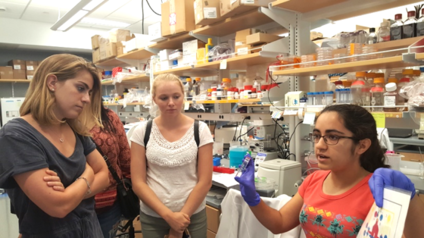
During the summers, CaSB@Yale laboratories and research cores give tours and demos to undergraduate students from liberal arts colleges, including Connecticut College. This helps undergraduates learn about the various types of research in the field of cancer systems biology and introduces them to instrumentation not available at their home institution, including microfabrication facilities in the West Campus cleanroom.
Below are some of the comments from the visiting undergraduates:
“I think the highlight of this visit was learning about the creation of the microfluidic device in the clean room and also seeing this device in action in the Levchenko laboratory.
“I was interested to learn about the impact that evolutionary biology has had on the cancer research being done in the Wagner laboratory.”
-
Microfluidics demo and activity in West Campus Science Festival
The Yale West Campus Pathways to Science Festival hosted over 100 students (in grades 6-12) from local schools to showcase the breadth of questions we are able to explore and answer using science. The theme this year was “colors”. CaSB@Yale junior investigators were able to showcase the power of microdevices through demonstrations and an activity in which students were able to make paper-based microfluidic devices.
-
Interactive Science Talks
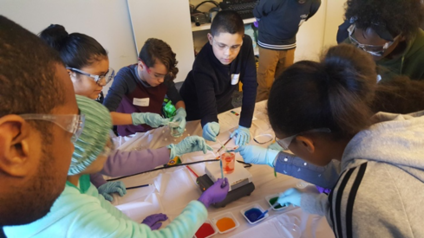
We work with middle school students to show them some of the tools and techniques CaSB@Yale investigators use in research and explain the types of scientific questions that investigators focus on. Through this half-day outreach event, we are not only able to give short research overviews of our work but the students are able to participate in hands-on modules that are linked to the research presentations. We have covered topics such as “The Power of Math in Biology,” “Image Reconstruction: From 2D to 3D images,” “Chromatography: A technique for separating mixtures,” “Protein shapes and properties,” and “Nanoparticles.”
-
Hands-on modules connected to cancer systems biology
We have developed two hands-on modules for middle school students to introduce them to coding, through building and controlling electronic circuits, and to biopolymers, such as actin. The modules are modular, promote hands-on investigation, and incorporate hypothesis-driven learning. They have been successfully used in a summer program for New Haven middle school students run by the Hopkins School in New Haven and can be modified to fit a variety of age groups.
- Constructing and Controlling Electronic Circuits. This module introduces students to electronic circuits and how to control them using computer programs.
- Exploring Biological Polymers Through Hands-on Models. In this module, students learn about the biology and the physical properties of the actin polymer. (3D printing files: ActinPhalloidin_Actin; ActinPhalloidin_Phalloidin; BareActin)
- The Physics of Collisions. In this module, students learn about different types of collisions and the conservation of momentum using a low-cost, custom-built air track and carts.
-
Special Seminars
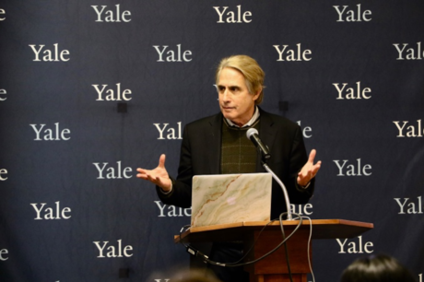 Robert Bazell, currently adjunct professor of Molecular, Cellular and Developmental Biology at Yale, and prior to that for 38 years as Chief Science and Health Correspondent at NBC News gave a seminar “Balancing Hope and Hype.”
Robert Bazell, currently adjunct professor of Molecular, Cellular and Developmental Biology at Yale, and prior to that for 38 years as Chief Science and Health Correspondent at NBC News gave a seminar “Balancing Hope and Hype.”
Bazell also gave a seminar, which served as the kick-off event to our Science Communication Program, entitled “Engage, Entertain and Inform” in which he discussed basic concepts to use when informing the public of science.
-
Training at CaSBY
-
Microfluidics workshop
-
We held an introductory workshop on May 19, 2018 for those with little or no experience with microfluidics but interested in learning about the technology for potential use in their research. The workshop included short lectures by Profs. Rong Fan and Andre Levchenko, small group discussions and mentoring, hands-on demos in the laboratory, and a tour of the West Campus cleanroom.
-
Microfabricated Tools for Cancer Systems Biology Summer School
We are organizing a 4 day-long summer school covering microfabricated tools for cancer systems biology. Profs. Rong Fan, Corey O’Hern, and Andre Levchenko will cover topics focused on high content imaging and cellomics, image processing, tumor heterogeneity and single cell sequencing, the tumor microenvironment and cell-cell interactions and signaling. The half-day lectures are followed by half-day laboratory activities and tutorials.
-
Visual experiments
Our center published a methods paper in the Journal of Visual Experiments, which involved making a movie, showing step by step, to construct simple devices for 3D culture and experimentation with cells and multicellular organoids in 3D microenvironments with a defined chemoattractant gradient.
Kang, T. Y., Ellison, D., Lee, S. H., Ewald, A. J., Levchenko, A. 3D Analysis of Multi-cellular Responses to Chemoattractant Gradients. J. Vis. Exp. (147), e59226, doi:10.3791/59226 (2019).
-
Science Communication Program
To help junior investigators improve their communication skills, particularly when it comes to explaining their research to the public – whether it be a future employer, a cancer patient, or their family. A program developed by Bob Bazell, together with Doro Noble, focuses on helping students develop a polished elevator speech. After a couple of weeks of practicing and incorporating feedback, students present their pitch to a group of CaSB@Yale administrative assistants, who provide feedback on their talk.
-
Summer students and postbacs hosted by CaSB@Yale
Cancer Systems Biology at Yale has hosted several National Cancer Institute summer undergraduate researchers, NSF REU summer researchers, academic-year undergraduate researchers, and postbacs in different laboratories within the center. These undergraduates have access to workshops and career events that are part of the Yale NSF REU Site co-led by O’Hern and Noble, in addition to training in systems biology, coding, and cancer biology through the educational resources the CSBC/PSON Education and Outreach Working Group has developed.
-
Jaewook (Jay) Jun
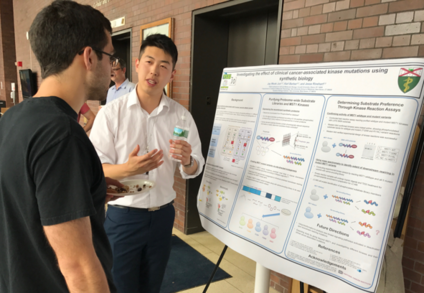 Jay was a NCI summer undergraduate in 2017, working in the Rinehart laboratory on characterizing kinases using synthetic human protein substrate libraries.
Jay was a NCI summer undergraduate in 2017, working in the Rinehart laboratory on characterizing kinases using synthetic human protein substrate libraries.
-
Edwin Neumann
Edwin was a NCI summer undergraduate in 2018, working in the Wagner laboratory on the evolution of stromal resistance to placental invasion which limits cancer metastasis.
-
Kristin Kim
We look forward to welcoming Kristin to the Chen laboratory, as a NCI summer undergraduate in 2019.
-
Richard Szeligowski
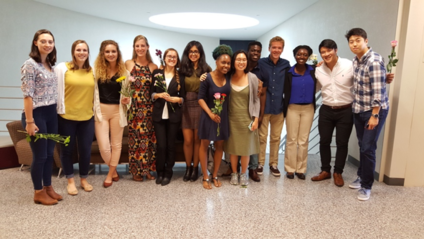 Richard conducted research in the Rinehart laboratory during 2018 helping to characterize a bacterial system capable of expressing tens of thousands of human phosphopeptides. He continued to also conduct research in the Wagner and Shen labs.
Richard conducted research in the Rinehart laboratory during 2018 helping to characterize a bacterial system capable of expressing tens of thousands of human phosphopeptides. He continued to also conduct research in the Wagner and Shen labs.
-
Thomas Hoang
Thomas completed summer research in the Levchenko laboratory as an NSF REU student in the summer of 2017, and returned as a postbac in 2018-2019. His research focused on developing a novel technique to detect and measure Protein Kinase A activity in migrating trophoblast cells.
-
Joseph Tibbs
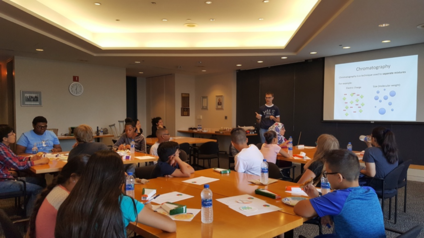 Joseph worked in the Murrell laboratory in the summer of 2018, as an NSF REU participant, conducting research on developing a dynamic time step method in cytoskeletal simulations.
Joseph worked in the Murrell laboratory in the summer of 2018, as an NSF REU participant, conducting research on developing a dynamic time step method in cytoskeletal simulations.
-
Kenneth Adusei
Kenneth worked in the Rinehart laboratory during the summer of 2017 as an NSF REU participant, developing strategies to identify phosphorylation dependent protein-protein interactions in cancer cell metabolism.
-
Symposia
Together with the Systems Biology Institute at Yale, the Cancer Systems Biology at Yale center organizes a symposium each year to update the community of our research progress in cancer systems biology.
- The Systems Biology of Phenotypic Switches: Cancer Invasion and Beyond – May 18, 2018.
- Advances in Systems Analysis of Aggressive Cancers - June 17, 2019